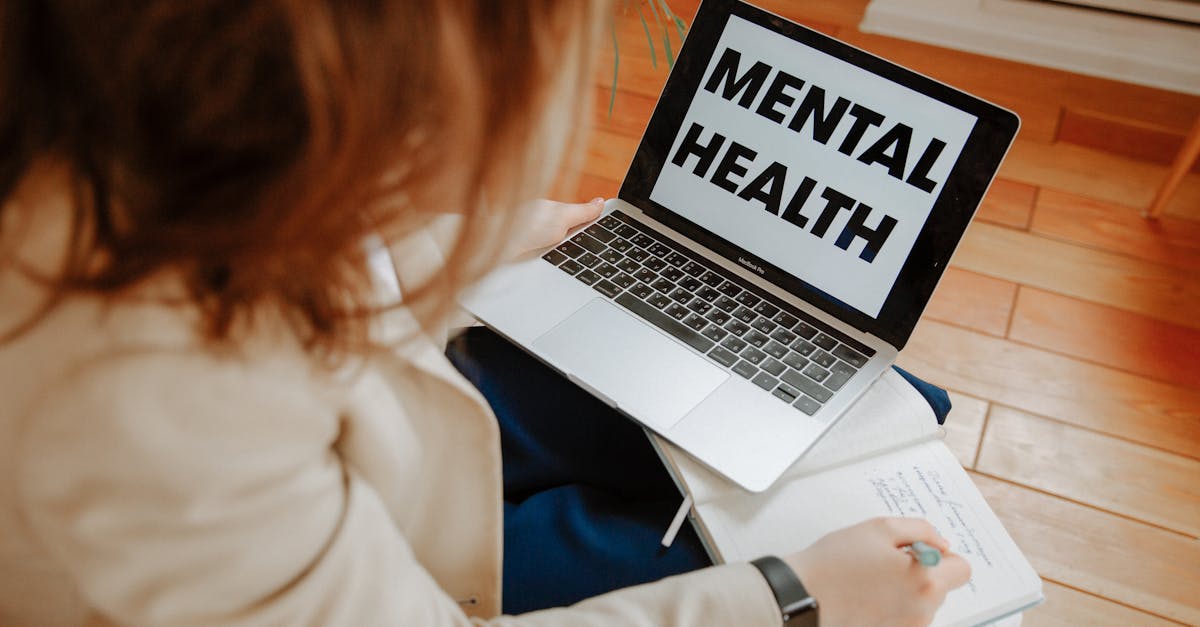New Study Links Screen Time To Teen Mental Health Issues
Introduction
In today's digital age, teenagers are spending an overwhelming amount of time in front of screens, be it for social media, gaming, or schoolwork. While technology offers numerous benefits, a new study highlights a concerning consequence—elevated mental health issues among adolescents. Concerns about anxiety, depression, and social media addiction are increasingly surfacing in young populations. The ease of access to digital devices and constant connectivity continues to reshape socialization and leisure in unprecedented ways. But are we paying enough attention to its psychological impacts on the younger generation? This article delves into the latest research examining the correlation between screen time and mental health issues among teens.
Advertisement
The Study in Focus
A recent study published in the Journal of Adolescent Health explores the effects of prolonged screen time on teenage mental well-being. Conducted over two years, researchers monitored a group of 2,000 adolescents across diverse demographics. The study investigated daily screen usage, examining its association with symptoms of anxiety, depression, and overall mood instability. Results revealed that teens engaging in screen-related activities for more than seven hours a day were twice as likely to exhibit severe depression compared to those with minimal screen exposure. The implications of these findings pose important questions for educators, parents, and policymakers alike.
Advertisement
Unraveling the Connection
Several factors contribute to the intricate link between screen time and deteriorating teen mental health. Screen activities, particularly on social media platforms, can lead to increased feelings of inadequacy and low self-worth. Exposure to cyberbullying, constant comparison, and unrealistic body image standards exacerbate these effects. Additionally, excessive screen time disrupts sleep patterns, directly impacting mental health. With the brain maturing during teenage years, restful sleep becomes crucial for emotional regulation and cognitive function. Thus, prolonged screen exposure not only displaces essential sleep but also induces stress-causing activities that disrupt mental equilibrium.
Advertisement
Role of Social Media
The interactive nature of social media complicates the dynamics of teen mental health. Platforms like Instagram and Snapchat are known for fostering environments where superficial validation prevails. "Likes," "comments," and "shares" fuel a social currency that many teens use to gauge popularity and self-worth. A digital misstep can have immediate ramifications, leading to anxiety and emotional distress. Further, while social media offers a sense of belonging and community, it paradoxically induces feelings of loneliness. Researchers have noted that even though teens are more connected online, the depth of in-person relationships essential for mental well-being is dwindling.
Advertisement
Parental Involvement
The study highlights the crucial role of parental guidance in moderating teenage screen time. Comprehensive involvement from parents, encompassing both monitoring and mentoring, can mitigate adverse outcomes. By setting balanced screen time limits and encouraging offline activities, parents help teens develop healthy habits. Open discussions about media literacy, online safety, and self-esteem enhancement empower teens to navigate digital spaces more confidently. It's key for parents to approach the subject interactively, fostering environments where adolescents feel comfortable expressing their digital experiences and challenges.
Advertisement
Impact on Academic Performance
An often-overlooked aspect is the relationship between excessive screen time and academic performance. The study illuminated a consistent trend where high screen time correlated with lower academic achievement and diminished concentration levels. The constant availability of digital distractions hampers focus and increases procrastination, making learning environments conducive to distractions rather than education. Researchers suggest integrating digital literacy courses and mindfulness training in school curricula to mitigate these effects, equipping students with the skills to manage their time and attention more effectively.
Advertisement
Health Interventions
Addressing the mental health impacts of screen time requires a multifaceted approach involving educators and healthcare professionals. School-based interventions focusing on digital health awareness and self-regulation can play a pivotal role. Health professionals advocate for regular mental health screenings for students, identifying early signs of distress. Collaborating with tech companies to develop apps or tools for mindful screen use is also gaining traction. Furthermore, communities can organize peer counseling groups, allowing teens to share experiences and support each other in managing digital consumption.
Advertisement
Positive Uses of Technology
While there's ample evidence linking screen time to negative mental outcomes, technology isn't all detrimental. Online platforms provide teens access to mental health resources, peer support networks, and educational content. Telehealth offers remote psychological consultations, breaking regional barriers to mental healthcare. Mindfulness apps and digital wellbeing tools promote mental resilience and self-care practices. Recognizing and promoting these constructive uses of technology are vital—leveraging screens as tools for learning, innovation, and personal growth.
Advertisement
Future Directions
Given the pervasive influence of technology, research into its effects on teen mental health calls for continuous exploration. Future studies could explore individual susceptibility to screen time, identifying specific traits that exacerbate or mitigate impacts. Developing engaging educational content can empower teens to make informed decisions about their digital consumption. Advocating for tech companies to prioritize user wellbeing through responsible design practices is equally crucial. Ensuring an ongoing dialogue among stakeholders—scientists, educators, tech developers, and policymakers—will transform insights into actionable strategies.
Advertisement
Conclusion
The connection between increased screen time and mental health challenges poses significant concerns for society, emphasizing the need for balanced digital engagement. Inclusive discussions among families, schools, and health professionals need to evolve, addressing early warning signs and promoting responsible media consumption. Embracing technology's positive potential can pave the way for healthier lifestyles, where screens serve as tools for connectivity and growth. By prioritizing mental health and demanding responsible digital practices, we can foster an environment where the digital realm and emotional wellbeing coexist harmoniously. Ultimately, cultivating these changes assures a brighter and balanced future for the digital generation.
Advertisement


